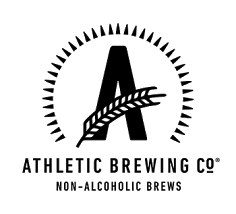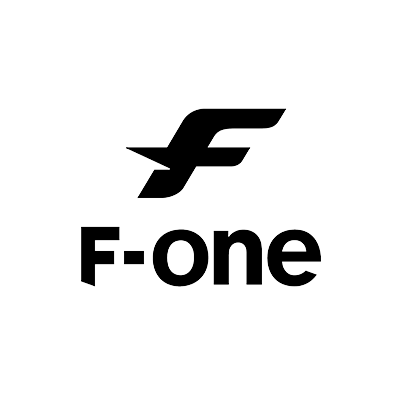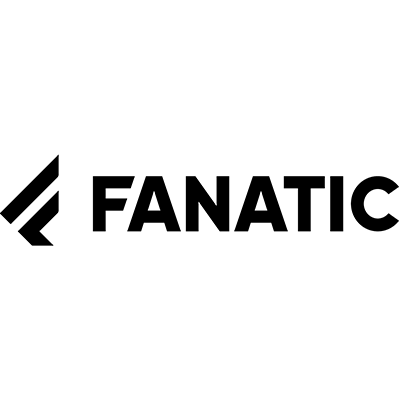IN THE BEGINNING: BUILDING A PASSION PROJECT
When three entrepreneurial watermen became disenchanted with working in the corporate world, a vast network of opportunity opened up for them in ways that were completely unexpected. That’s what happened when David Stover, Ben Kneppers and Kevin Ahearn decided to launch a passion project, named Bureo, in order to create meaningful work around ocean preservation stemming from a mutual lifelong commitment to surfing and sustainability. Has it been easy? Hell, no. Is it worth it? Every d*amn day.
“At our heart, we’re ocean lovers and surfers. Having grown up in fishing communities along the Northeast coast of the U.S., we have a deep respect for livelihoods based on the sea and a calling to protect what gives us so much.”
Bureo literally means “waves” in Mapudungun—a native language of Chile and Argentina. The name is fitting as it was a grant from the Chilean government that officially launched their business. Cleverly, in 2013, Chile was incentivizing entrepreneurs to launch their start-ups in the country by offering them a $50K cash grant to bring their ideas to Chile. It was then that Bureo was formed. With that initial start-up funding, the team purchased a used 2-door SUV in Santiago that mechanical engineer Ahearn kept running, and the three surfers-turned-businessmen began driving to local fisheries to scout out what materials they could find to create their envisioned product. Finalizing their source material as end-of-life fishing nets (which can become marine hazards when not properly discarded), the team then began to move the unusable nets from port to Santiago where, at the time, they had a partner in a recycling facility.
FROM NETS TO DECKS
Having sourced their materials (discarded plastic fishing nets that fishermen were either cutting and dropping to the ocean floor when they frayed, or leaving them in a tangle at port for disposal, thus causing an environmental challenge), the team worked out a process to retrieve, sort, clean and shred the plastic nets. They created a system using a rather simple mechanical process, during which the nets are broken down and re-formed into NetPlus nylon pellets. These pellets then can be used to create an entirely new product, effectively upcycling the material and keeping it out of the ocean.
“We’re proud to offer fishing communities a more circular solution for end-of-life fishing nets while empowering brands with a fully traceable recycled material that can help them achieve their sustainability goals.”
The method is original, smart, and clean. The Bureo team works with no intention of shaming the fishing community but rather by incentivizing them with a plan that pays the fishermen for the proper disposal of their used fishing nets, which are then recycled into NetPlus nylon pellets for other uses. The fishermen now say they are proud to participate in ocean health.
Bureo began to collect their NetPlus material to develop their first product: The Minnow skateboard deck made completely from recycled fishing nets. The product was introduced on Kickstarter in 2014, helping to fund the first 1,000 skateboard production run. BUREO would build the complete decks, the vegetable alloy wheels, and self-assemble them in a single car garage.
LEANING INTO THE AHI: GETTING THE ‘RIGHT PEOPLE’ ON BOARD
The Minnow led to the more performance Ahi model launched in 2016 through a fortuitous collaboration with Carver Skateboards. The Carver founders were surfers as well, and keen to join the mission to keep nets out of the ocean.
Word had gotten out about these three entrepreneurial minds who went to great lengths to source raw materials and reclaim discarded fishing nets in order to keep them out of the ocean. People began talking about this 100% transparent supply chain from net collection through recycling in a world where so many brands were ‘greenwashing’ or paying lip service to the environment while still holding onto toxic practices. The news found its way into the head offices at Patagonia in Ventura, California in 2014.
Patagonia was a privately owned company at the time that included the Chouinard Family venture fund to help entrepreneurs building businesses to support the environment. Bureo received an email from the team at Patagonia asking them to visit their HQ in Ventura. They did, and - incredibly - an investment from Patagonia was offered.
As co-founder David Stover remembers it, “When we got that email from Patagonia, we hadn’t shipped a single board yet. All we had done was make a skateboard and launch a Kickstarter. During those early years, Kevin (Ahearn) and Ben (Kneppers) had met musician Jack Johnson in Chile, while volunteering for Save The Waves in Santiago. Naturally, they shared their skateboard made from fishing nets”
The good news is the team had done their research and the Ahi skateboard deck had unique flex and performance. Jack not only rode and liked the board, but later invited the team at Bureo to Hawaii on a school tour to teach kids about the innovative board as a creative way to engage in ocean conservation and preservation. A positive solution from the overwhelming negative issue of plastic in our ocean.
On that Hawaiian school tour, they happened to meet 12x surfing world champion Kelly Slater while on a beach cleanup. They pitched recycled nets to him as well. Although nothing came out of that initial meeting, Kelly told them something that no one knew at that time - that he was building a sustainable apparel company using environmentally sourced materials —including recycled nets. Within the next year Slater launched the apparel brand Outerknown while Bureo had already started making its own tracks into the apparel industry.
UPLIFT from Patagonia
Along with the early investment Bureo received from the Chouinard family, the three young entrepreneurs agreed to become a certified B-Corporation, or a for-profit company that meets high standards of social and environmental performance, accountability and transparency. Mirroring Patagonia’s strict ethical business standards, Bureo also joined 1% For The Planet, a movement of businesses that donate 1% of their profits to environmental causes. Years of R&D led Patagonia to exclusively source NetPlus materials for apparel, launching Bureo’s move into the apparel industry in 2021. This developed into an advanced line of NetPlus materials for active and outerwear, from the material in Patagonia’s hat brims to the nylon for their iconic Baggies shorts and famed down sweater jackets. As exciting as it was, this meant Bureo had to increase their output - and fast.
Since that time, Bureo has expanded its collection programs in South America to include Chile, Ecuador and Peru. They also have a program in Oxnard, California as well, and are contracting a team in Japan to source more material. In reality, net sourcing is much more than just the collection of discarded fishing nets. It includes educating and training local communities about the dangers of ocean plastic, spearheading beach clean ups and networking with fisheries in these countries to set up recycling bins where fishermen are paid for depositing their nets. The work is constant, the travel is relentless, and the return is a work in progress.
“We are still small and scrappy and we still need to be showing up,” says Stover.
In 2020-2021, Bureo began talks with Kelly Slater’s team at Outerknown about the NetPlus nylon yarn which they had painstakingly developed through the early R&D years. To create apparel fabric which met rigorous standards, the NetPlus nylon pellets are extruded into high quality yarns ready to be woven into a range of performance fabrics. Slater, being the perfectionist he is, was exacting about how he wanted his fabrics to look, feel and perform. Durability was a driving factor. Slater surfed all over the world, collaborating on every detail with the Outerknown team and fine-tuning the feel and performance for his signature boardshorts. In 2022-2023 they began testing.
“The fabrics feel different, which we really like,” explains Stover. “Their design has more structure and they don’t stick to your legs, limiting bunching and chafe. Drying quick with stretch in all the right movements. The NetPlus nylon offers greater durability so it’s something that is going to last.” This year, in 2025, Outerknown launched the Apex Boardshort, made exclusively with NetPlus nylon material. They are selling out fast!
Growth & Vision: Where to Next for NetPlus?
In 2024, the team purchased their headquarters building in Chile and now own their own large-scale recycling facility which employs 23 Chilean employees full time. Worldwide their team brings together around forty like-minded employees working on solutions. They have transitioned from making their own products to partnering with brands like Carver Skateboards, Future Fins, Costa Sunglasses (who now host NetPlus frames in their inventory), Finisterre and Outerknown. Bureo is currently focusing their efforts on capturing the waste, cleaning it and creating enough NetPlus material to provide companies with a source-to-product transparent recycling process so that their partners can hit their sustainability goals and pledge to the consumer the authenticity of their upcycled products. This consumer-based attention towards eco-conscious purchasing has been developing over the past ten years.
To get a sense of their growth, and the work involved in making it happen, Stover explains that back in 2013 Bureo sourced and supplied ten tons of material in their first year. Today, their annual supply is 1,900 tons, a huge increase from a volume standpoint. However, he says, they are still a small company with modest revenue. The attention to their product is expanding, and as such, they need to continue to increase their output.
“We didn’t originally launch the company as a global enterprise,” explains Stover. “But more of a passion project, a break from our “regular” jobs. From the outside it all looks very easy, but it is still extremely difficult even with the scale and traction. For us, our commitment to protecting the ocean is a driving force for everything we are doing.”
What has also grown exponentially is their vision of what is possible for NetPlus materials. Bureo’s original notion to keep nets out of the ocean has grown so much bigger. The team is now intent on educating how brands think about sourcing their materials. Co-founder Ben Kneppers, with a wide background in volunteering and charity work, helps to drive their vision forward saying, “If we are going to go out and do something positive, it has to sustain. The bigger impact is to build this company in a way that would influence how people make products.”
Over the next ten years, the brand’s focus is on diversifying a bit. Specifically, they are focused on the apparel industry which is currently 95% of their business from a financial standpoint. Statistics show that - even though inroads have been made - 98% of material within nylon apparel is still produced from virgin fossil fuel sources. Bureo is successful in having made some impact by supplying recycled materials to their partners. Their goal for the next ten years is to scale the solution (NetPlus materials out of recycled fishing nets) which they have proven works, and match it to the larger problem: the global supply chain for the industry which is currently still using virgin materials that impact water quality, environmental health and ocean benefits.
Bureo says their next target is to achieve 5,000 tons of material annually.
When asked how the current state of U.S. tariffs is affecting their business and partners, David Stover explains that the direct impact of the tariffs is the uncertainty of not knowing what is going to happen. Bureo understands that some of their partners are more exposed to the fluctuations that may be caused by the tariffs, and when those partners struggle to know how much to produce, or where to produce, that affects the entire supply chain. Bureo is adopting a ‘wait and see’ approach as they move forward, trying to focus on what they can control and adapting to the changes. For a young company in a developing space, this is (difficult) business as usual.
In the end, although the work load is huge, the problems to solve are important paradigm shifts for the health of the environment. The team at Bureo hasn’t blinked. They are committed and determined - through the strength of their product, their partners and vision for the future - that they will create positive change towards creating more sustainable products and educating people along the way to rethink how they source materials for the betterment of the planet. It’s heady, but it’s real. Stover ended the conversation by saying, “It helps enormously that we care. We want to make a difference for the earth and the ocean. Having Patagonia involved gave us a moral and ethical compass to follow. When you are driven by something beyond just running a business, it impels you to keep the fire alive.”









